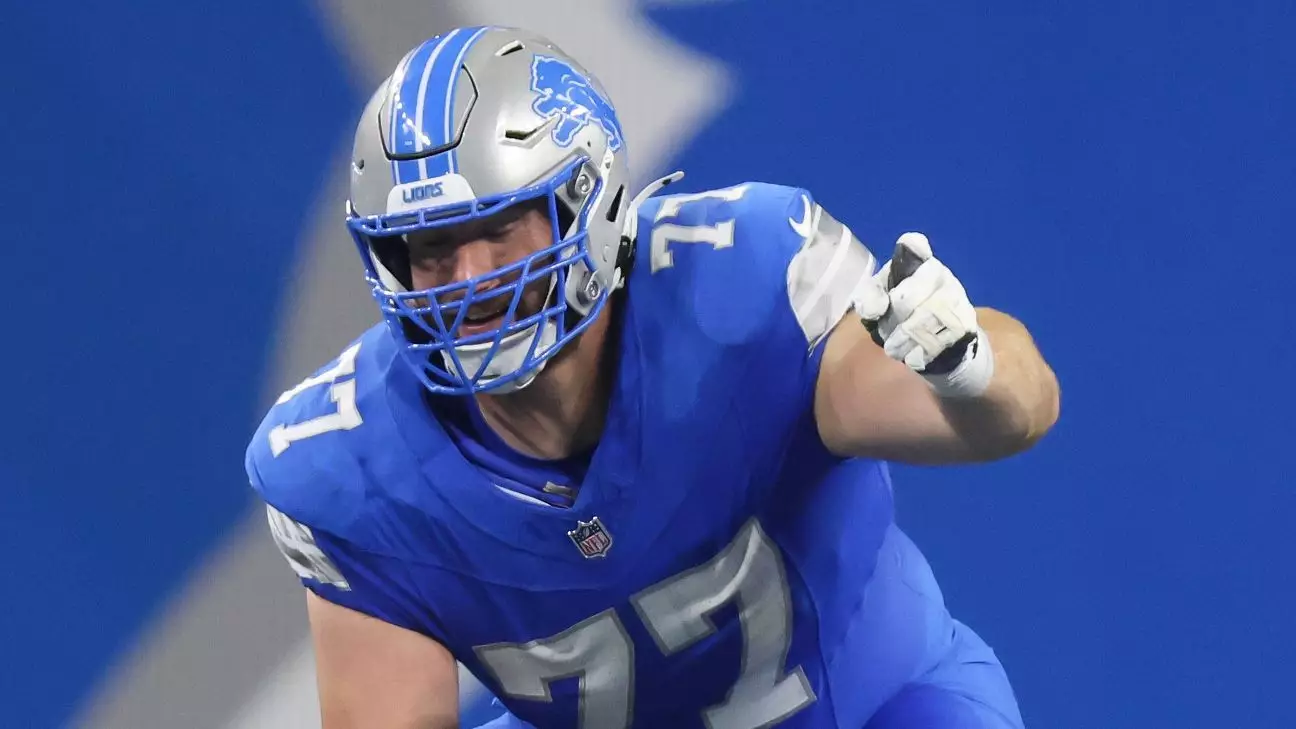The recent retirement announcement of Frank Ragnow, the Detroit Lions’ esteemed center, reverberates throughout the NFL community, encapsulating the bittersweet reality of professional sports. Ragnow, a four-time Pro Bowl selection, has consistently demonstrated exceptional resilience and unwavering dedication over his seven-year career, yet he ultimately faced the harsh truth that many athletes grapple with: the body has its limits. In a heartfelt post on social media, he articulated the emotional weight of this decision, emphasizing the importance of prioritizing his health and the future of his family. His candid reflection highlights the struggle that many athletes endure as they grapple with the notion of retirement, especially when faced with persistent injuries and diminishing performance capabilities.
Ragnow’s career was not devoid of challenges. Often playing through significant injuries, including a fractured throat and debilitating toe problems, his determination to compete exemplifies the spirit of a true warrior. While some might perceive such tenacity as admirable, it raises questions about the long-term costs associated with pushing one’s body to its limits. Ragnow’s announcement is a poignant reminder that the glamor of professional sports often conceals the physical toll it exacts on its players.
Legacy Built on Pain and Perseverance
Drafted in the first round by the Lions in 2018, Ragnow quickly established himself as a cornerstone of the offensive line, earning second-team All-Pro honors and multiple Pro Bowl selections. His impact was felt not only in terms of performance but also in the leadership he provided to his teammates. His story is one of triumph; however, it is also one punctuated by hardship. The fact that he was the highest-paid center in the NFL at one point speaks volumes about the Lions’ faith in his talents, yet it also underscores the pressures to perform amid adversity.
The Lions’ decision to invest heavily in Ragnow reflects a broader trend in the NFL—where players are often celebrated for their resilience, yet their health is frequently compromised in the pursuit of victory. While he played valiantly through injuries, including a significant toe ailment that plagued him for years, the question remains: was it worth the cost? For Ragnow, the answer became evident in his retirement announcement, marking a difficult but necessary pivot towards self-care and family.
The Future of the Lions’ Offensive Line Without Ragnow
With Ragnow’s exit, the Lions now face the uncertainty of finding a suitable replacement. Enter rookie Tate Ratledge, who has been taking first-team snaps during organized team activities. Transitioning from college guard to the NFL’s center position is no small feat, especially when filling the shoes of a player of Ragnow’s caliber. Ratledge represents hope for the future, but he will undoubtedly encounter immense pressure as he steps into a vital role on an offensive line that has relied heavily on Ragnow’s experience and skill for years.
The Lions as a franchise must assess how they will compensate for the loss of not just a player but a leader. Ragnow’s presence transcended mere statistics; he was a galvanizing force, fostering camaraderie and resilience in the locker room. Such intangibles can be challenging to measure, and his absence may ripple through the team’s morale and overall performance. How well the Lions navigate this transition could define their immediate future and shape their offensive identity moving forward.
Ragnow’s Impact Beyond the Field
Beyond the statistics and on-field exploits, Ragnow’s legacy will likely extend into how he champions health and player welfare as an advocate for the importance of personal well-being over brutal competition. It’s an important message to resonate strongly within a culture that often glorifies toughness, sometimes at the expense of health. By making a proactive choice for his future and his family’s well-being, Ragnow sets an imperative example. Athletes, young and old, can learn from his decision—not only about the importance of navigating injuries but also about accepting when it is time to step away for the greater good.
His post-retirement journey may open doors for advocacy concerning player longevity and health, inspiring former players and current athletes to take a stand for their well-being. Ragnow’s wisdom in prioritizing his life beyond football could thus serve as a beacon for future generations, reminding them that while the game demands everything, life after football is equally significant.

